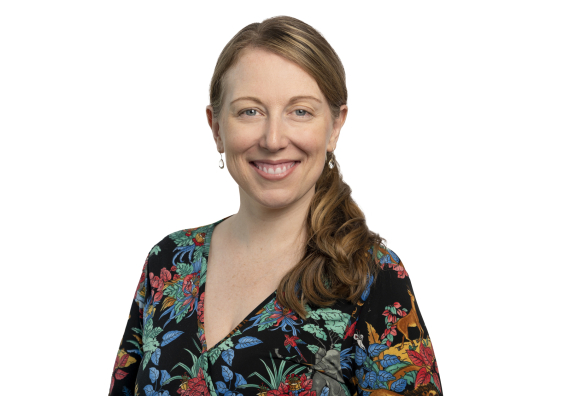UNSW Genetics Breakthrough Story, Tied to Folbigg Case, Secures Prestigious Bragg Prize
A story by Nicky Phillips, Australian Editor of Nature magazine, on how advances in genetics have impacted our legal system has won the 2023 Bragg Prize.
The essay, ’Trials of the Heart’, will be published alongside the 30 longlisted entries to the prize in The Best Australian Science Writing 2023, NewSouth’s annual collection featuring the finest Australian science writing of the year.
“It’s an honour to receive the Bragg Prize for this story, which is tragic in many ways. It has a happier ending, because Kathleen Folbigg has been released from jail, but it is ultimately a very sad story,” Ms Phillips said.
In her article, Ms Phillips explains how new evidence about gene variants has affected the case of Kathleen Folbigg, who was convicted of murder then pardoned 20 years later after science suggested that at least two of her four children may have died of natural causes.
Ms Phillips said she was inspired to write her story after reading an article about the Folbigg case, written by Australian journalist Oscar Schwartz, in Wired.
“It focused on the genomics research of Carola Vinuesa (then at the Australian National University) and her colleagues which found that Folbigg’s girls carried a rare genetic mutation implicated in sudden death. Oscar’s story intrigued me, and I started looking at the genetics research and why in the first inquiry into Folbigg’s convictions, the judge upheld the convictions.
“My story was published just before the second inquiry into Kathleen Folbigg’s convictions which, thanks in large part to the scientific evidence, ultimately resulted in her being pardoned and released from jail. My story was trying to illuminate how science weighs the evidence for genetic causes of disease and how that fits with the legal system’s concept of reasonable doubt.”
Professor Mary O’Kane AC presented the welcome address at the launch of this year’s edition of The Best Australian Science Writing, edited by The Guardian Science reporter Donna Lu, while UNSW Professor Merlin Crossley, Deputy Vice-Chancellor Academic Quality, presented the 2023 Bragg Prizes.
Prof. Crossley congratulated Ms Phillips on receiving the Bragg Prize.
“Nicky tells a story of how new scientific discoveries in genetics shed new light on a legal case where a mother had been convicted of murdering her children. Her essay on the Kathleen Folbigg case is a superb example of how deep knowledge can transform our world, and in this case help right wrongs,” Prof. Crossley said.
“Great science writing offers important and fascinating insights into our world and Nicky’s story is spellbinding. The world is always changing and sometimes science moves faster than the law, but everyone does their best and it is excellent for all that the science was respected.”
Bragg Prize runners up
Jo Chandler and Amalyah Hart were announced runners up of the 2023 Bragg Prize.
‘Buried Treasure’, written by Ms Chandler, reports on the Million Year Ice Core Project, which seeks to recover a million years of Earth’s climate history by drilling deep into Antarctica’s ice sheet. Within these ice layers, air bubbles serve as valuable time capsules, providing critical insights into historical environmental conditions, such as carbon dioxide concentrations.
Ms Hart’s story, ‘Model or Monster’, explores an exciting but controversial approach researchers are taking to save southern corroboree frogs. They’re arming these amphibians against the devastating chytrid fungus through gene editing. The technology offers the potential for scientists to make precise changes within a single generation, and careful ethical oversights are discussed to ensure the work has positive outcomes.
The UNSW Press Bragg Prize for Science Writing is an annual prize for the best short non-fiction piece on science written for a general audience. It is named in honour of Australia’s first Nobel laureates, William Henry Bragg and his son William Lawrence Bragg.
The Bragg Prize winner receives $7000 and two runners-up each receive a prize of $1500. The prizes and associated events are supported by the Copyright Agency Cultural Fund and UNSW Science.
UNSW Bragg Student Prize
The UNSW Bragg Student Prize celebrates excellence in science writing by Australian high school students in years 7 to 10 and is supported by UNSW Press in conjunction with Refraction Media.
The 2023 Bragg Student Prize was won by Elsie Paton, a Year 9 student at Kambala in Sydney. Elsie’s essay titled ‘Two Paths to AI: The Choice of Humanity’ highlights the ethical challenges posed by AI and the need to weigh potential downsides against the benefits of scientific advancement.
The Best Australian Science Writing anthology
This year the Best Australian Science Writing anthology and the UNSW Press Bragg Prize for Science Writing attracted entries from scientists, journalists, writers, and poets.
The anthology, now in its thirteenth year – and with a foreword by Prof. Mary O’Kane – showcases the extraordinary breadth, depth, and creativity of Australian science writers.
Scientific topics raised in the anthology include whether we alter animals’ DNA to save them from extinction, what old ice reveals to us about the Earth’s past, and how the world’s most expensive and explosive substance is made.
The book and the prizes support UNSW’s strategy to inform public debate about issues that directly impact on the community.

